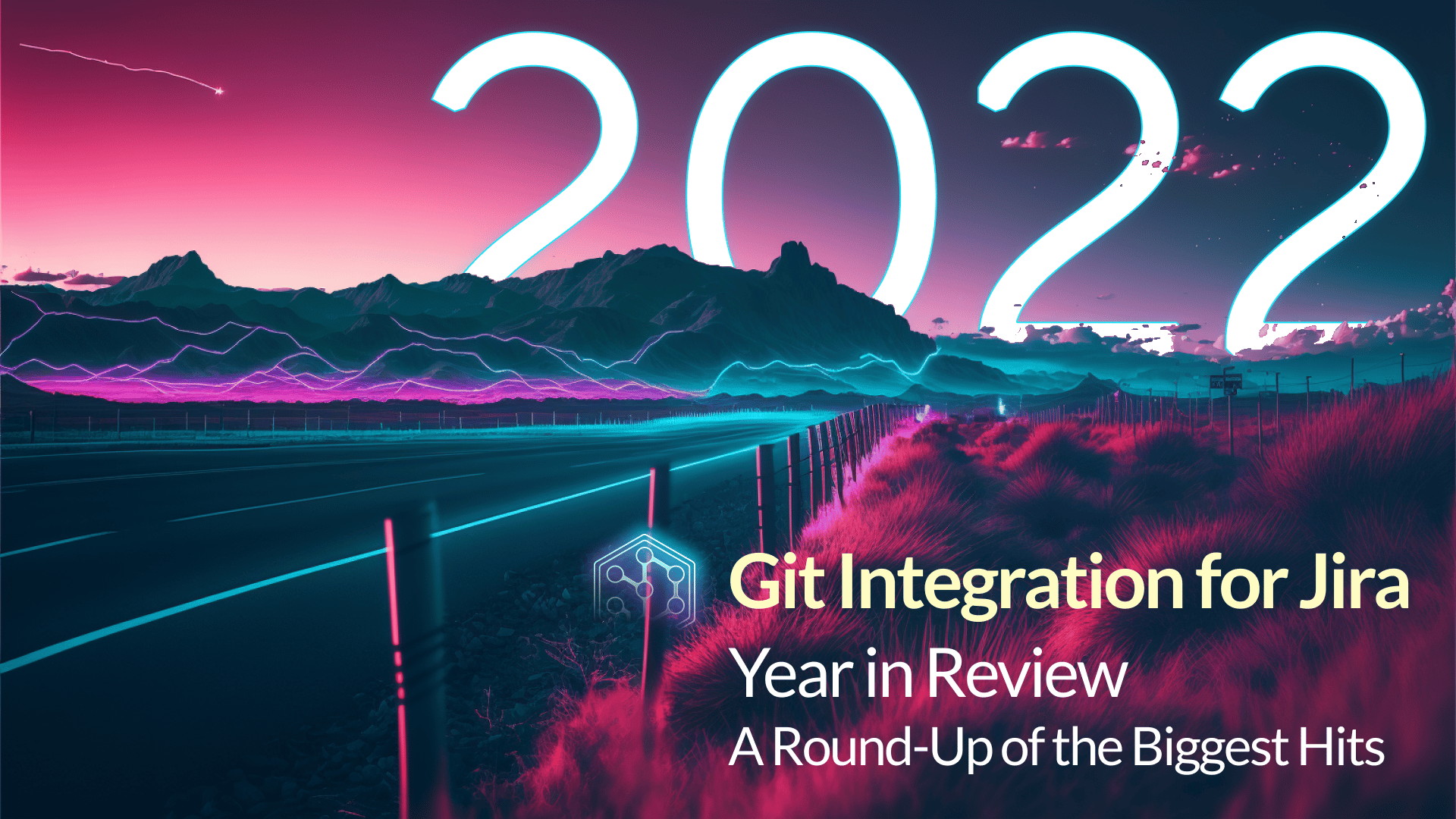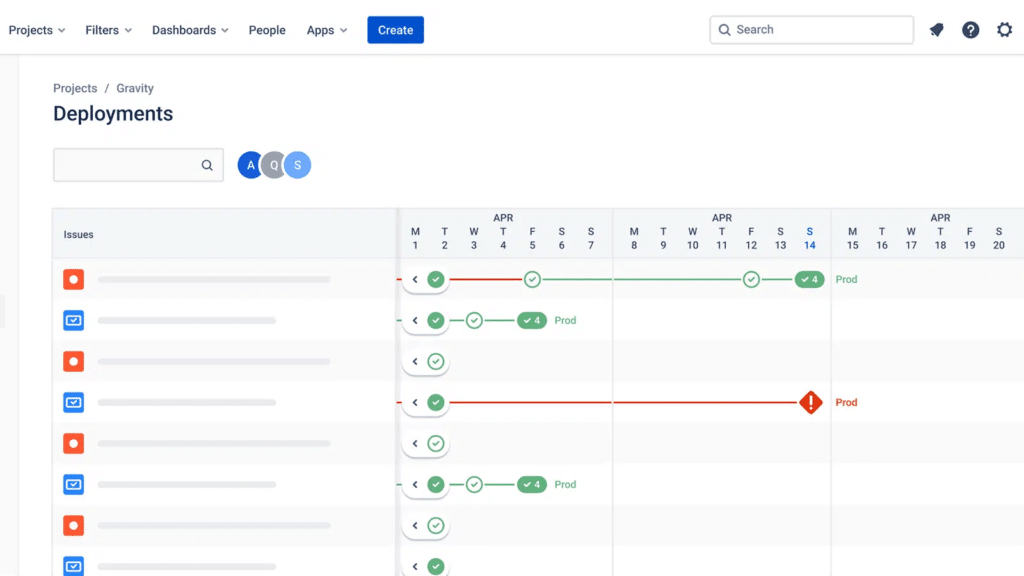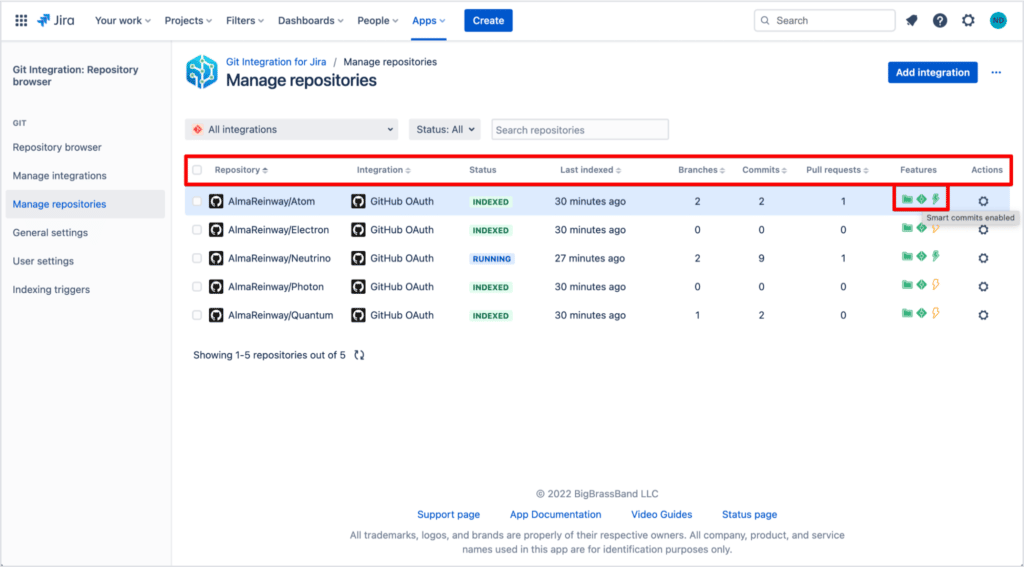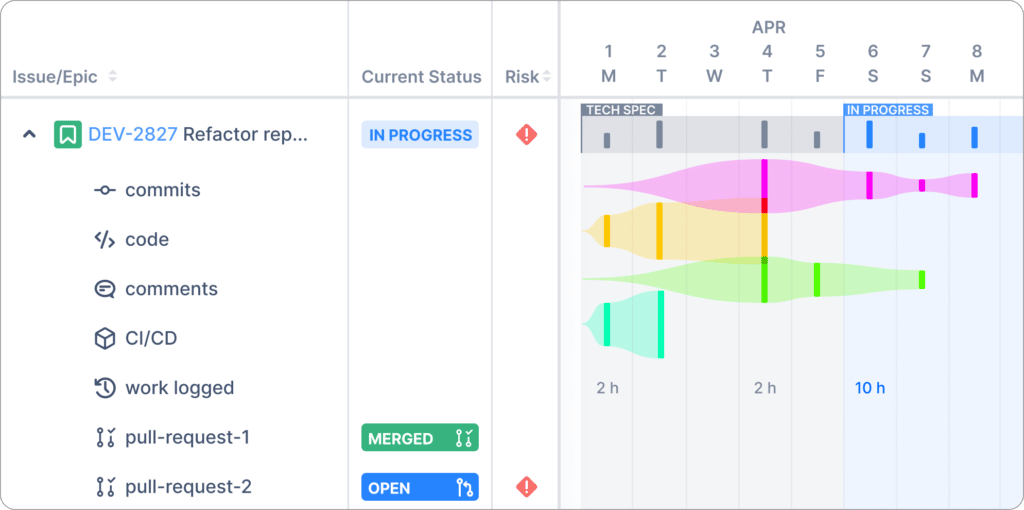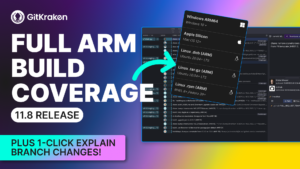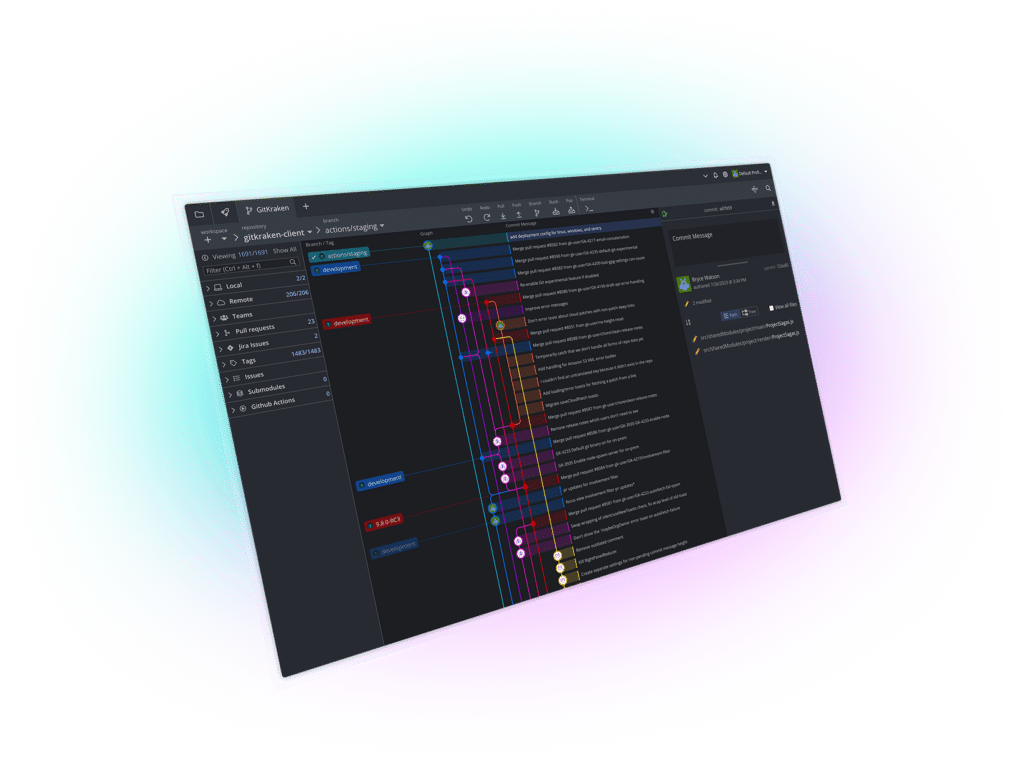Thank you for being a customer and putting your trust in our team. 2022 was a big year for GitKraken and Git Integration for Jira. We made numerous advancements in our mission to help customers operate more efficiently by bringing their Jira and DevOps data closer together.
Let’s take a quick look at some of the 2022 improvements, and then a sneak peek into what’s in store for 2023.
CI/CD for Jira Brings Builds and Deployments Into Jira
Seeing Git branches, commits, tags, and pull requests in Jira is great – but what about visibility into what happens after that?
In 2022 we launched our first free extension for Git Integration for Jira (hint hint, more to come). With CI/CD for Jira, you can see when a Jira Issue is included in a build and deployed to your environments. Product and engineering teams can now have full visibility into the work that’s planned, in progress, and completed.
Jira users can easily see this information in the Issue details, plus it unlocks a whole new world for JQL searches and Automation rules. You can even see releases plotted along a timeline with the Deployments View.
If you’re using GitHub Actions, GitLab CI/CD, Azure DevOps Pipelines, or Bitbucket Pipelines, make sure you add the extension – it’s free! And if you’re using other tools for CI/CD that you would like to see integrated (e.g. Jenkins), please let us know so we can consider it for the roadmap.
Improved App Management Layout and Settings
Jira Admins are the unsung heroes in keeping systems running smoothly and optimized for the teams they support. When it comes to managing Git data in Jira, we want to make Administrators’ lives easier and give them more control. Earlier in the year we completely overhauled the Manage Git Repositories page and broke it into two pages – Manage Integrations and Manage Repositories.
These pages offer a new level of visibility and control, giving Admins:
- Finer control over which repositories are connected
- Easier searching, filtering, and sorting
- Scannability to quickly see details like when a repo was last indexed or how many branches are in it
- Improved access to indexing logs
We’ve received great feedback that customers like the control Git Integration for Jira gives them, but they want even more. We’re continuing to develop more options for fine tuning things like default settings and permissions to make the app operate more closely with how development teams work.
Extended Data Residency to Europe, Germany, and Australia
Atlassian has continued to expand its data residency options and Git Integration for Jira has followed suit. When you select your hosting location for Jira, Git Integration for Jira will host associated data in the same location.
Late in the year, we added the option for data hosting in Germany. This was preceded by Australia and Europe earlier in 2022.
With data residency, you have more flexibility and control over the data strategy for your business. The security and privacy of your data is an immense priority for our team. We continue to maintain SOC2 Type II compliance, participate in Atlassian security programs, and maintain an active security bug bounty program.
Expanded Customer Support and Success Teams
A major tenet for Git Integration for Jira is our commitment to customer satisfaction. Whether it’s responding to feature requests, bugs, or just general setup help – our team is always ready and willing to assist.
In 2022, we nearly doubled our customer success and support team to respond more quickly and precisely to your needs. This improved our ability to respond to and resolve issues that were reported. And it enabled our subject matter experts to spend more time working with customers to optimize the value received from Git Integration for Jira.
We also responded to more customer feedback in 2022, culminating with a product usage survey and interviews in September and October. This valuable insight will help us continue to shape the product and our services to meet and exceed your needs. We greatly appreciate those who participated last year and look forward to even more participation this year.
What’s Next in 2023 – More Insights
2022 was great, but how are we going to top it?
For one, our product and development teams have adopted a new release iteration and planning cycle. This will help us release more frequently and safely – with a greater number of features and fixes in 2023.
Probably more exciting is that we’ll be launching our second free Git Integration for Jira extension. Where Git Integration for Jira is primarily focused on an individual Issue level, this new app will provide a higher level view of all Git + Jira work activity. This will enable software teams to build smarter and ship faster by providing insights that help track progress and avoid delays.
I want to emphasize that this combines your Jira data with your development data, which is a truly powerful tool. It will help you plan and respond to issues that arise during a development cycle and surface (previously hidden) opportunities for improvement.
You can easily identify (or be alerted) if:
- Work is off track (e.g. a pull request has been open too long)
- A release is at risk (e.g. an issue is in progress with a deadline approaching)
- Team members are overloaded or velocity is declining
More details will be available and we’ll be opening up an early access program in the coming months. If you are interested in trying it out and providing feedback, please reach out to our customer success team.
Thank you for putting your trust in GitKraken and the Git Integration for Jira team. We greatly appreciate the opportunity to bring your Jira and DevOps data (and your teams) closer together.
For more 2022 GitKraken product highlights, read out annual round-up blog post on GitKraken Client and GitLens.
 GitKraken MCP
GitKraken MCP GitKraken Insights
GitKraken Insights Dev Team Automations
Dev Team Automations AI & Security Controls
AI & Security Controls